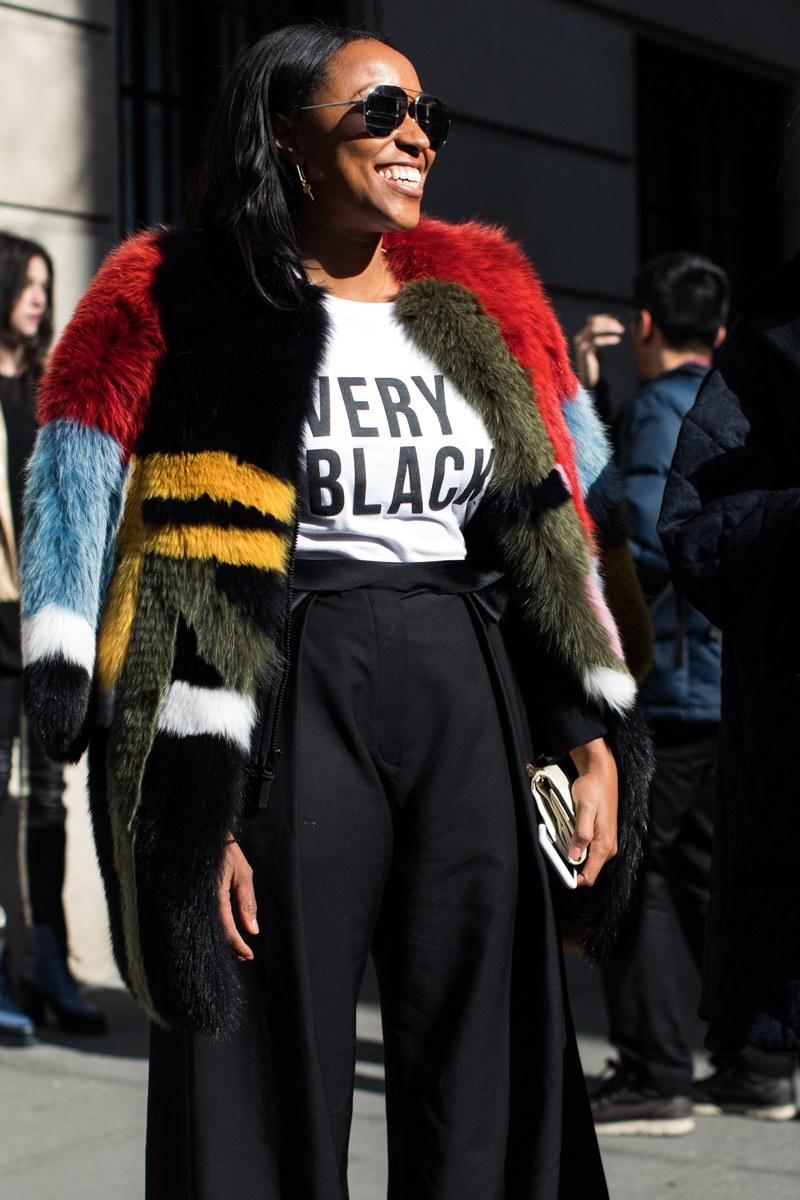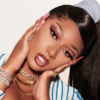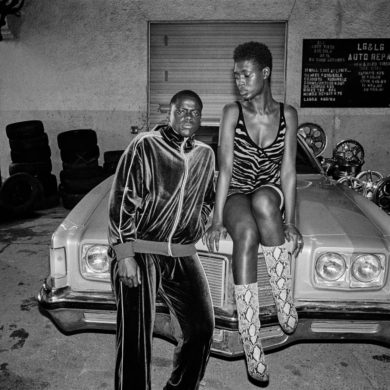Throughout history, clothing has woven its way into social and political discourse, acting as a cultural mirror and a symbol of one’s beliefs. Telling people what you believe in wasn’t enough; showing them was just as important.
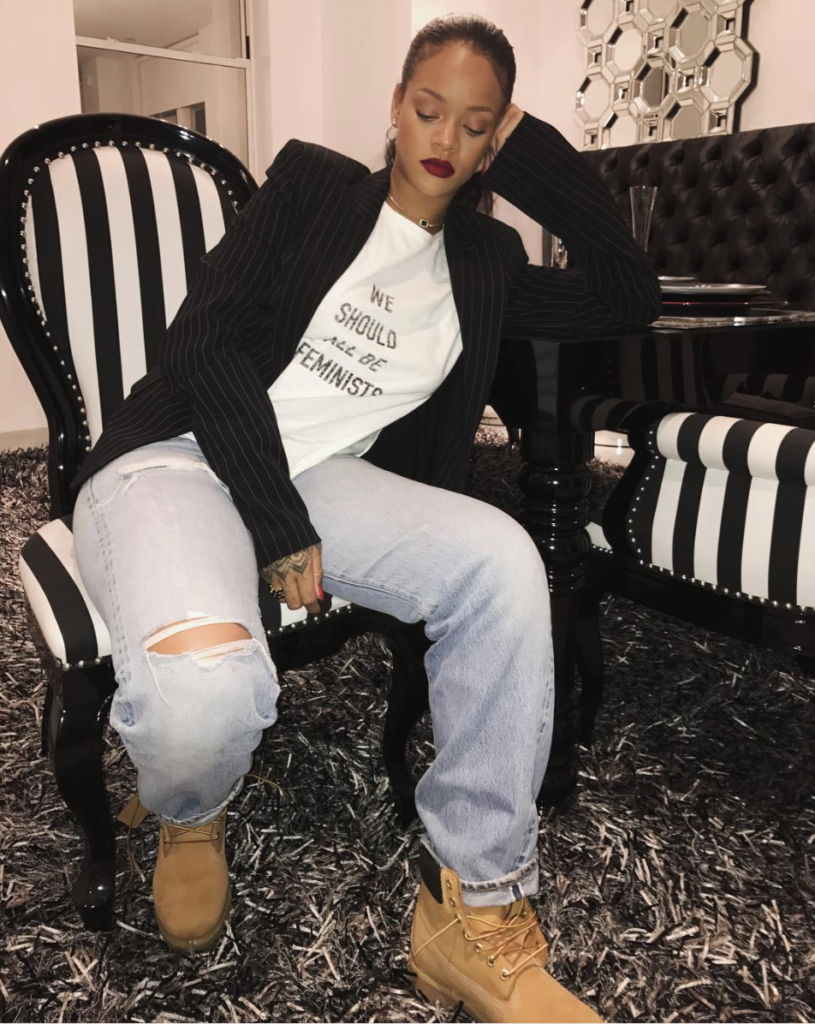
From the Black Panthers donning black berets and afros to political buttons in the 1980s AIDS movement and even the powder pink hats bestowed on the anti-Trump movement in 2016, fashion is used as a walking billboard denoting what you believe. And one garment has stood the test of time as a platform for movements: The slogan t-shirt.
The t-shirt dates back to the 19th century with working-class roots. Originally a one-piece union suit, they were cut into separate tops and bottoms and used by miners who worked in hot environments. In the 1950s Marlon Brando and James Dean made the shirts popular and seemingly cool. It wasn’t until the 60s that slogans would be introduced to these shirts when a shop named Mr. Freedom in London produced and sold Disney-inspired slogan tees. And in the 80s the first politically-charged slogan T-shirt was worn by designer Katharine Hamnett, who infamously greeted Margaret Thatcher, the former British Prime Minister, with a shirt that read “58 percent Don’t Want Pershing” in reference to the relocation of US missiles in West Germany.
Hamnett told The Guardian in 2009:
“Slogans work on so many different levels; they’re almost subliminal. They’re also a way of people aligning themselves to a cause. They’re tribal. Wearing one is like branding yourself.”
The AIDS movement of the 1980s also used slogan tees as a vessel for change. During the Reagan administration, the slow response to the HIV/AIDS epidemic, which had affected over 100,000 people in the US by 1989, mobilized people. Activists wore shirts with “Act Up” and “Silence = Death” in bold letters as a way to gain attention for the movement. Fast forward to the 2010s, a decade marked by radical social change and revolution. From February 2012, when Trayvon Martin died to the inauguration of Donald Trump in 2016, the 10s have been unabashedly political and slogan tees have worked its way to the forefront again.
Now slogan t-shirt companies line the streets at protests, sit comfortably in classrooms and exists visibly on city sidewalks, as people proudly don their beliefs in an era of social and political discourse. In 2014, the clothing company GLOSSRAGS, created by Randi Gloss, was made in response to the police shootings of Black people. The shirts which were properly labeled as “And Counting” lists the names of lives lost to police brutality, from Emmett Till to Jordan Edwards, who died in 2017.
“This shirt, this living memorial, was something people were willing to bear upon their backs to keep from forgetting the lives that were taken too soon and the work that still needs to be done to create equality within the world we live in,” Gloss wrote of the brand.
Two years later in April of 2016, Green Box Shop was conceived by Kayla Robinson in an 800 square foot apartment.
If you’ve seen the picture of Frank Ocean proudly wearing a shirt asking “Why be racist, sexist, homophobic or transphobic when you can just be quiet?” then you’ve probably encountered Green Box Shops on more occasions than once. Issues that the brand tackles range from feminism, immigration, race, and LGBTQ+ issues, to marijuana reform.
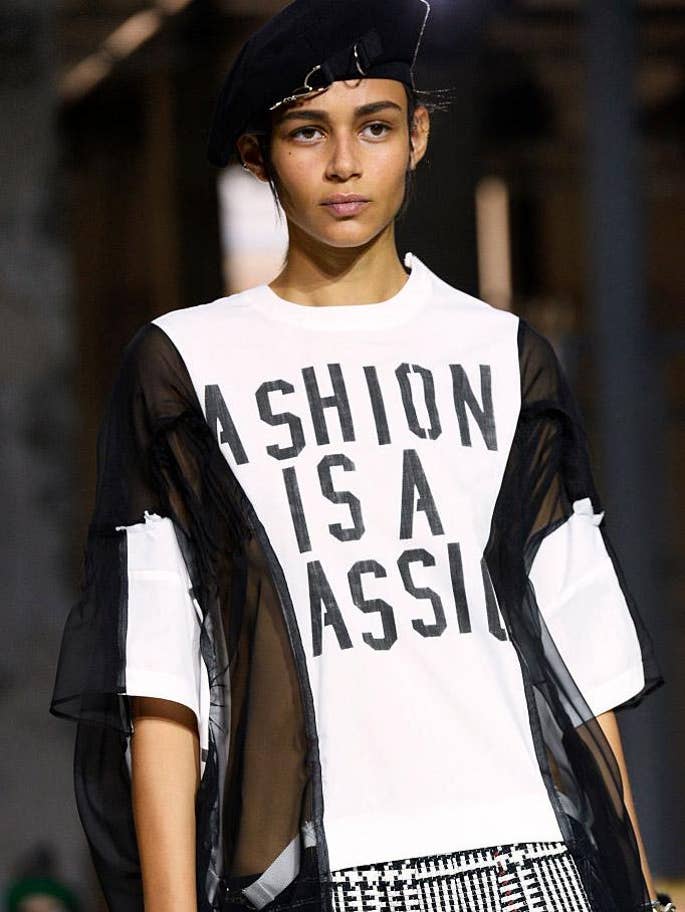
“To me, fashion is a valid way to express your opinions and desire for social change. I feel as though we can really make a difference with the things we put our money into,” She told Teen Vogue in 2017.
“I want to be an example for other clothing companies, [proving] that fast fashion and the exploitation of workers and our environment for a profit is completely unnecessary and damaging.”
With celebrity fans like Zendaya, Jessica Williams and Frank Ocean, Robinson’s shirts are making a statement about fashionable politics. Another young person taking on the helm of intersecting politics with fashion is Tazia Cira of XYST Ugli, who created a line of upcycled t-shirts. Cira described their brand as a “tiny method of protest” against cooperations who make “expensive tees that cost cents to create with fluffy empowering statements” under the guise of feminism.
They do this with shirts proclaiming “the gender binary is a pseudoscientific product of Western colonialism.” and “cishet capitalism has no place in pride.” Wearing your beliefs across your chest as a protest sign has joined the cycle of resistance fashion, as socially conscious slogan tees become the new wave in political fashion.
